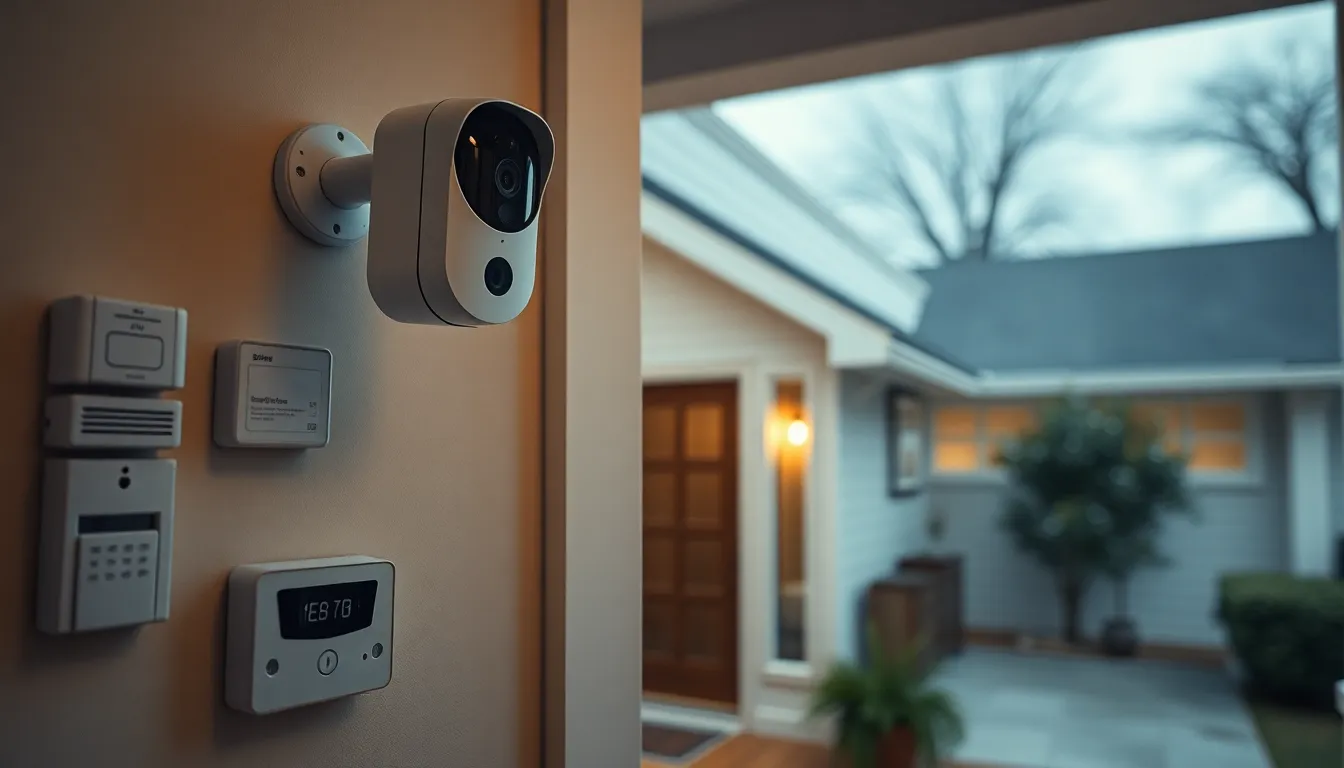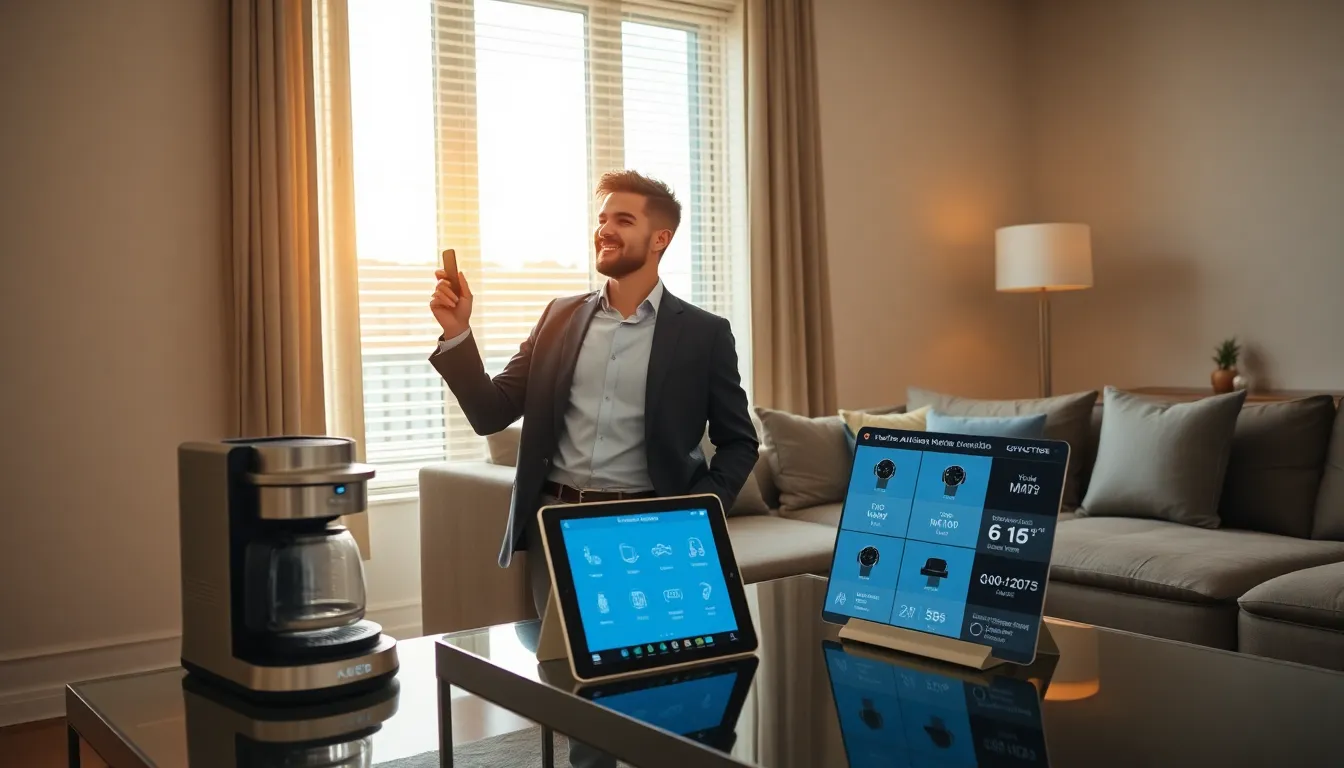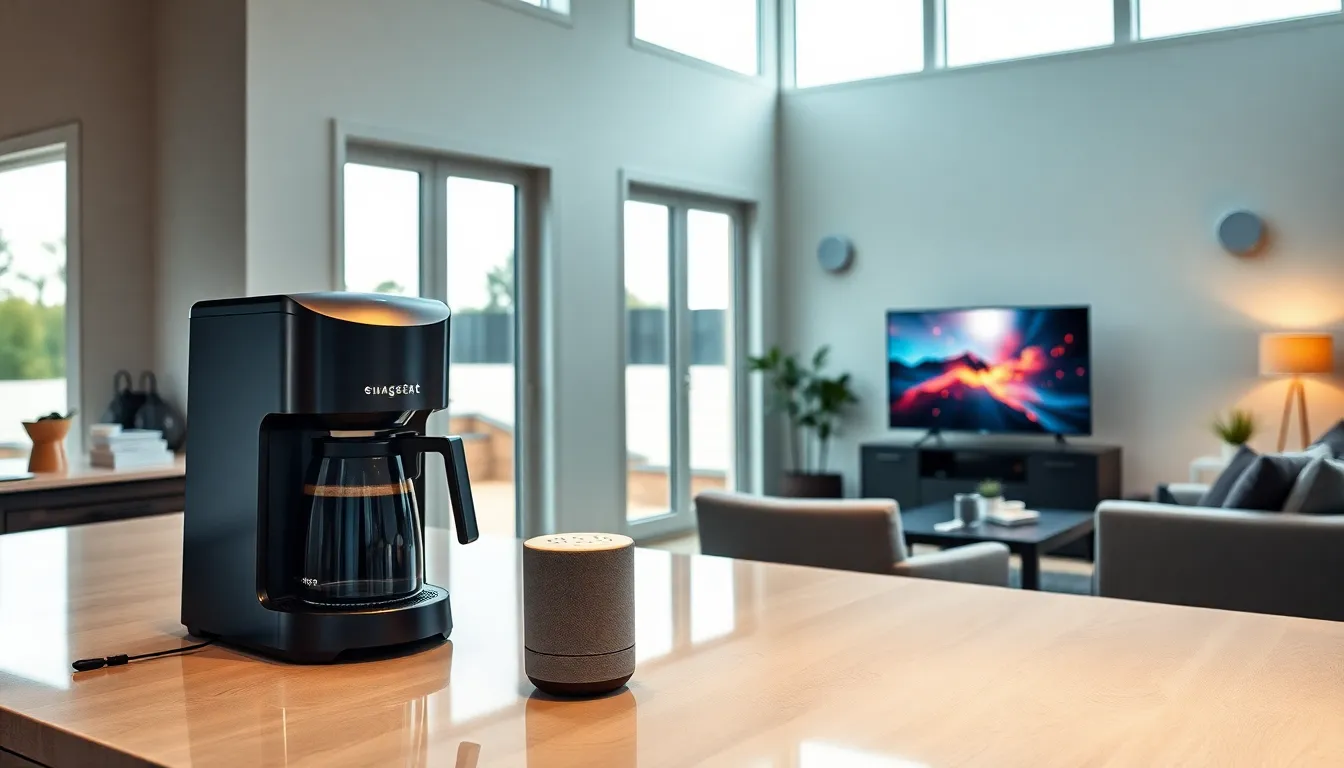In a world where home invaders are as common as bad reality TV shows, it’s time to level up your home security game. Advanced home security isn’t just about locking doors and hiding spare keys under the doormat. It’s about creating a fortress that even the most determined burglars wouldn’t dare to approach.
Table of Contents
ToggleOverview Of Advanced Home Security
Advanced home security involves a multi-layered approach to protect residences. Strategies incorporate various components designed to deter intrusions. Surveillance cameras serve as a primary deterrent, providing homeowners with visibility of their property. Security alarms, integrated with smart technology, alert owners and authorities during unauthorized access.
Environmental design also enhances security. Proper lighting around entrances and pathways reduces hiding spots for potential intruders. Reinforced doors and windows add a physical barrier that strengthens overall safety. Homeowners invest in secure locks that offer higher resistance against forced entry.
Smart home technology revolutionizes security measures. Systems connected to smartphones permit real-time monitoring, ensuring instant control over security settings. Remote access allows users to lock doors and view live feeds of their premises from anywhere. Integration of motion sensors triggers alerts when movement occurs unexpectedly.
Home automation also reduces vulnerability. Scheduling lights to turn on and off mimics owner presence, making homes less appealing to burglars. Smart doorbells provide homeowners with a way to communicate with visitors and view who is at their door.
Incorporating these measures fosters a comprehensive security environment. A combination of physical barriers, technology, and environmental design forms a robust defense system. Homeowners pursuing advanced home security benefit from peace of mind, knowing they’ve taken proactive steps to protect their families and properties.
Types Of Advanced Home Security Systems

Various home security systems enhance safety and deter burglaries. Two major categories exist: smart home security solutions and traditional security systems.
Smart Home Security Solutions
Smart home security integrates technology into daily living. Features often include cameras that link to mobile devices, enabling remote monitoring. Automation capabilities allow homeowners to control alarms and locks from their smartphones. Real-time alerts provide immediate notifications for any unusual activities. Many systems support voice control, enhancing convenience and accessibility. A significant advantage involves compatibility with various smart devices, creating a cohesive ecosystem for home security.
Traditional Security Systems
Traditional security systems consist of basic components like alarms and monitors. Often, they provide reliable protection through wired setups and central monitoring services. Key features frequently include motion detectors and door/window sensors that trigger alarms. Response services typically notify authorities during emergencies. Installation often requires professional help, ensuring a secure setup. Although these systems may lack the advanced technology of smart solutions, they remain effective for many homeowners.
Key Features To Look For
Advanced home security systems come with several key features that enhance safety and convenience. Homeowners should focus on specific elements to ensure a high level of protection.
Video Surveillance
Video surveillance provides real-time monitoring of the property. Cameras with high-definition resolution capture clear images during day and night. Many systems now include features like motion detection, enabling immediate alerts when activity occurs. Remote access through mobile devices allows homeowners to check camera feeds from anywhere. Consider systems that offer cloud storage for recorded footage, ensuring easy retrieval of evidence if needed. Additionally, look for options that integrate with smart home systems, allowing seamless functionality.
Intrusion Detection
Intrusion detection systems effectively monitor unauthorized access to homes. Motion sensors are a crucial component, detecting movement and immediately triggering alarms. Door and window sensors notify homeowners when openings occur. Systems that learn the household’s routine can differentiate between normal and suspicious activities. Smart features enable instant alerts sent directly to smartphones. Proper installation of these devices significantly reduces the risk of break-ins. By combining multiple detection methods, homeowners establish a comprehensive defense against potential intruders.
Benefits Of Implementing Advanced Security
Advanced home security systems offer numerous advantages that enhance safety and peace of mind. Increased deterrence against burglars ranks among the primary benefits. Strong security measures make homes less appealing targets for potential intruders.
Real-time monitoring equips homeowners with immediate knowledge of their property’s status. Cameras and alarms transmit alerts to smartphones, enabling quick responses to suspicious activities. This capability allows for timely intervention, which can thwart a potential crime.
Incorporating smart home technology serves to further enhance security. Automation features let homeowners control locks, lights, and cameras from their devices. These systems enable users to simulate occupancy even when away, providing an additional layer of protection.
Reducing insurance premiums constitutes another significant benefit. Many insurance companies offer discounts to homeowners with advanced security systems in place. The proactive approach to security not only protects property but also translates into financial savings.
Enhanced control plays a key role in advanced security benefits. Homeowners can customize alerts and activity logs, tailoring their systems to meet specific needs. This level of control fosters a sense of safety and responsiveness.
Lastly, investment in advanced security systems contributes to long-term property value. Homes equipped with cutting-edge security measures attract potential buyers. As such, security becomes an essential element for homeowners considering resale value.
By integrating modern technology with robust physical defenses, these systems create a comprehensive security solution. Collectively, the benefits lead to a secure living environment, safeguarding loved ones and valuables effectively.
Challenges And Considerations
Security concerns for homes come with unique challenges that homeowners must address. Budget constraints often play a significant role in deciding on the type of security system to implement. Some homeowners might prioritize affordable solutions over comprehensive options, limiting their overall protection.
Additionally, the complexity of advanced systems can be daunting. Many homeowners may require technical expertise for installation and maintenance, leading to potential hurdles in adopting high-tech solutions. Compatibility issues arise when integrating various devices within a smart home ecosystem. Selecting compatible components ensures seamless operation, enhancing overall security effectiveness.
Privacy concerns also factor into the decision-making process. Homeowners often worry about data security and unauthorized access to personal information through connected devices. Ensuring robust encryption and secure networks helps mitigate these risks.
When considering security features, homeowners must evaluate their specific needs. For example, a family living in a high-crime area may benefit more from extensive surveillance systems than those in a quieter neighborhood. Adapting security measures to fit location and lifestyle can optimize protection.
Finally, the evolving landscape of technology presents both opportunities and challenges. Staying informed on the latest advancements is crucial for maintaining effective security. Monitoring updates and upgrades ensures systems remain reliable and secure against emerging threats. By addressing these challenges, homeowners can make informed choices that enhance their security posture.
Investing in advanced home security is crucial for protecting families and properties in an increasingly uncertain world. By adopting a multi-layered approach that combines technology with physical barriers, homeowners can create a formidable defense against intrusions. The integration of smart home technology not only enhances security but also provides convenience and control.
While budget and complexity may pose challenges, the long-term benefits of enhanced safety and potential insurance savings make it a worthwhile investment. Staying informed about the latest advancements ensures homeowners can adapt their security measures effectively. With thoughtful planning and the right systems in place, peace of mind is within reach for every homeowner.






